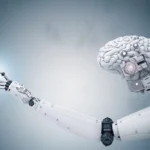In the ever-evolving landscape of education, technology has played a pivotal role in reshaping traditional teaching methodologies. One of the most revolutionary advancements is the integration of Artificial Intelligence (AI) into teacher training programs. AI has the potential to enhance the skills and capabilities of educators, fostering a more dynamic and effective learning environment.
The Current State of Teacher Training:
Traditionally, teacher training programs have relied on standardized courses, workshops, and mentorship to prepare educators for the challenges of the classroom. While these methods are valuable, they often lack the personalized and adaptive approach necessary to address the diverse needs of students in today’s classrooms. AI introduces a paradigm shift by offering customized, data-driven insights that cater to individual learning styles and preferences.
The Role of AI in Teacher Training:
Personalized Learning Paths:
AI algorithms can analyze vast amounts of data to identify specific strengths and weaknesses in an educator’s teaching style. This enables the development of personalized learning paths, allowing teachers to focus on areas that need improvement. Adaptive training modules, powered by AI, can cater to individual preferences, ensuring a more engaging and efficient learning experience.
Data-Driven Decision-Making:
AI empowers teacher training programs with robust data analytics, enabling educators and program coordinators to make informed decisions. By collecting and analyzing data on teaching methodologies, student engagement, and assessment outcomes, AI can provide valuable insights into the effectiveness of training strategies. This data-driven approach allows for continuous improvement and refinement of teacher training programs.
Virtual Reality (VR) Simulations:
AI-driven VR simulations offer a unique and immersive training experience for educators. Trainee teachers can practice classroom management, student engagement techniques, and decision-making in a realistic virtual environment. This hands-on approach allows teachers to refine their skills in a risk-free setting, gaining confidence and competence before entering a real classroom.
Challenges and Considerations:
While the integration of AI in teacher training programs holds immense promise, it is not without challenges. Some key considerations include:
Ethical Concerns:
As AI becomes more deeply ingrained in education, concerns related to data privacy, algorithmic bias, and the ethical use of technology must be addressed. Teacher training programs must prioritize ethical guidelines to ensure the responsible and fair implementation of AI.
Technological Infrastructure:
Effective integration of AI into teacher training requires robust technological infrastructure. Many educational institutions may face challenges in terms of access to advanced technology and the necessary resources for implementation. Ensuring equal access to AI-driven teacher training is crucial for widespread success.
Artificial Intelligence has the potential to revolutionize teacher training programs, offering personalized learning paths, data-driven decision-making, and immersive simulations. As education continues to evolve, it is essential to embrace the transformative power of AI while addressing ethical considerations and ensuring equal access for all educators.
By leveraging AI in teacher training, we can empower educators to navigate the complexities of modern classrooms and better prepare students for the challenges of the future.














Leave a comment